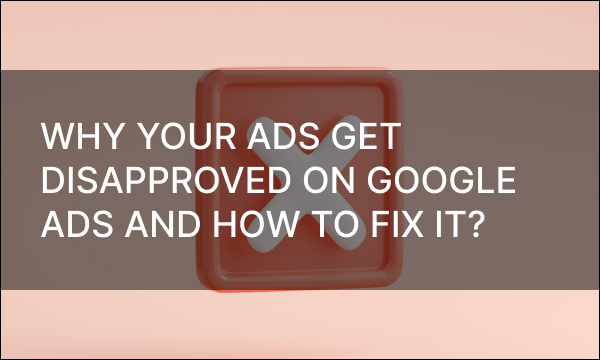Your business is doing fairly well – sales outweigh losses, customers aren’t complaining, and you’re getting the hang of running things. But it still doesn’t feel like enough. Maybe you want to start shipping outside your city but don’t yet have customers to reach. Maybe the feedback you receive isn’t detailed enough to guide improvements. Or maybe you just want more people to know you exist.
In that case, there’s something you should try – a “magic pill” in the world of marketing: SMM.
What Is SMM?
SMM, or Social Media Marketing, is a set of advertising strategies aimed at promoting businesses online through social platforms and blogs. Its main goal, and most effective outcome, is to work directly with your target audience and grow your customer base.
Whether you’re selling a niche product or popular items like clothing or cosmetics, SMM can benefit your business in many ways beyond attracting attention.
5 Reasons to Start Using SMM
- Expanded reach to both your target audience and potential customers across various social platforms.
- Unprecedented levels of interactivity and engagement with people interested in your products or services.
- Greater influence on your customers, guiding the content they consume and share.
- Access to valuable, first-hand customer data for analytics and campaign planning.
- With skilled management, SMM can be more cost-effective than many traditional advertising strategies.
Pros and Cons
Pros:
- People often share content they like with friends and family, potentially turning them into new customers.
- Engaging with your customers online can foster loyalty.
- Generates additional traffic to your website and increases potential conversions.
- Allows real-time feedback collection and lets you address negative comments before they harm your reputation.
Cons:
- SMM requires consistent content creation and engagement to stay relevant.
- You need a deep understanding of your chosen platform and strong analytical and decision-making skills.
- Customers can voice complaints publicly, potentially harming your reputation if not addressed promptly.
Measuring SMM effectiveness can be difficult, as many platform-specific factors can unpredictably influence user behavior.
While SMM is generally a worthwhile investment for promoting and improving your business, it does come with certain challenges that should be acknowledged.
Instruments and Methods of SMM
SMM tools can be broadly divided into two categories: content-oriented and promotional.
- Content-oriented tools focus on creating useful, engaging content: posts, videos, articles, etc.
- Promotional tools aim to market your brand, products, or services through that content.
For best results, both types should be used together.
Examples of SMM methods include:
- Targeted advertising aimed at specific customer segments to increase conversions.
- Content creation such as posts, videos, and images.
- Audience engagement through comments, polls, and discussions.
- Collaborations with social media influencers.
- Giveaways, special sales, and contests.
FAQs About Running SMM Campaigns
1. What does social media do for my business?
SMM can increase brand awareness, strengthen customer relationships, boost traffic and conversions, and provide valuable real-time feedback for improvement.
2. Is social media marketing worth it?
Yes, SMM offers global reach and access to potential customers you couldn’t reach otherwise. You can target demographics precisely, build a brand community, and often spend less than on traditional ads.
3. What goals does SMM pursue?
- Increasing website traffic
- Promoting sales, deals, and new products
- Raising brand recognition
- Communicating company values
- Connecting with the public
- Addressing negative feedback in real time
4. How do you increase your followers?
Treat your SMM like its own startup: invest time and effort into your accounts, focus on high-quality content, and your target audience will naturally be drawn to you.
5. What is viral marketing?
A strategy aimed at quickly spreading promotions or ads designed for maximum shareability. Like a virus, it spreads across users and platforms, rapidly building brand awareness.
6. Is SMM necessary for success?
Not strictly. Your business can succeed without SMM, but it’s a powerful tool for expansion and audience growth that’s worth considering.
7. How should you handle negative feedback?
See it as an opportunity to improve. Listen to complaints, address the issues, and show customers you’re willing to make changes.
8. Can SMM replace traditional advertising?
No, SMM is best used as a complement to traditional methods. Some audiences, such as older demographics, may not be reachable through social media alone.
9. How to manage SMM accounts?
Track trends, use planning tools, monitor content performance, and consider automation for analytics and scheduling.
10. What is sticky content?
Content that grabs attention instantly and encourages customers to buy products or share it with others.
To Sum Up
SMM uses social platforms to promote your company, strengthen your brand, increase sales, drive traffic, and boost conversions. It requires time, effort, and dedication to manage an engaging, informative social presence.
In essence, SMM is about:
- Connection – building trust and loyalty with customers.
- Interaction – engaging with your audience to deepen their understanding of your brand.
- Customer data – collecting insights to improve products, refine targeting, and enhance campaigns.
While SMM is a powerful addition to your marketing strategy, it should complement rather than replace traditional advertising, opening the door to a more connected and interactive relationship with your audience.

![Save Your Google Ads Budget in a Smart Way [4 Automation Tools]](https://blog.promonavigator.com/wp-content/uploads/2021/02/save-ads-budget-600-360.jpg)

